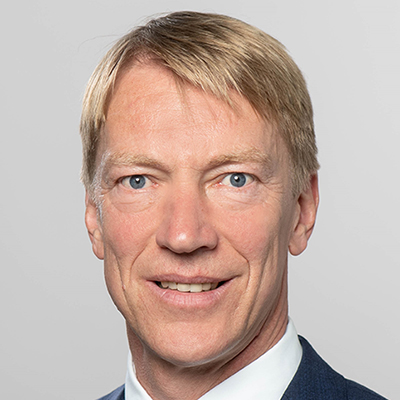
Joachim Henkel joined TUM School of Management in 2004 as a full professor of technology and innovation management. He received a degree in physics from the University of Bonn, a Ph.D. in economics from the University of Mannheim, and his habilitation in innovation management at Ludwig-Maximilians-University Munich. He was a visiting scholar at University College London, MIT Sloan School of Management, Harvard Business School, and Singapore Management University.
He is regularly invited to give research seminars at international universities and business schools. After his Ph.D., he worked for two years with the consulting firm, Bain & Company. He consults for firms in the ICT industries, in particular on IP litigation matters.
In his research, Joachim Henkel studies various topics related to innovation: The management, licensing, and litigation of patents, in particular in the context of standards such as LTE; digitalization, with a focus on smart contracts on blockchains and on explainable AI; markets for technology, in particular acquisitions of innovative young firms by incumbents; how firms profit from innovation, both empirically and using game-theoretic models of value capture theory; and open and user innovation. His work has been published, among others, in Harvard Business Review, Rand Journal of Economics, Research Policy, and Strategic Management Journal. He serves on the editorial review boards of the Academy of Management Journal, Industrial and Corporate Change, and Research Policy. Three of his former doctoral and habilitation students hold faculty positions at German universities. Since 2015, Joachim Henkel serves as the TUM School of Management’s Dean of Research.
Markets for technology: In various research projects Joachim Henkel studies the acquisition of innovative young firms by incumbents. Projects deal, for example, with the effect of the acquisition of OSS firms on their sponsored public OSS projects (with Michael Vetter, TUM; Henning Piezunka, INSEAD; Helge Klapper, RSM); the impact of regulation on acquisitions in the drone industry (with Virginia Herbst, TUM); first-mover advantages on the market for technology in the field of medical technology (with Moritz Fischer, TUM; Ariel Stern, HBS); and with R&D competition between entrants and an incumbent in a game-theoretic model (with Thomas Rønde, CBS).
The licensing of standard-essential patents in the IoT: Standard-essential patents (SEPs) on standards such as LTE and Wi-Fi are mostly licensed to device makers rather than to those firms that translate the standard specification to practice (baseband chip makers). This approach works reasonably well for mobile phones since manufacturers are typically large and familiar with the technology. It is, however, highly problematic in the IoT space where device makers are mostly small and ignorant of communication technologies and the patents that cover them. This project aims at understanding how licensing in this space actually works.
Key Publications